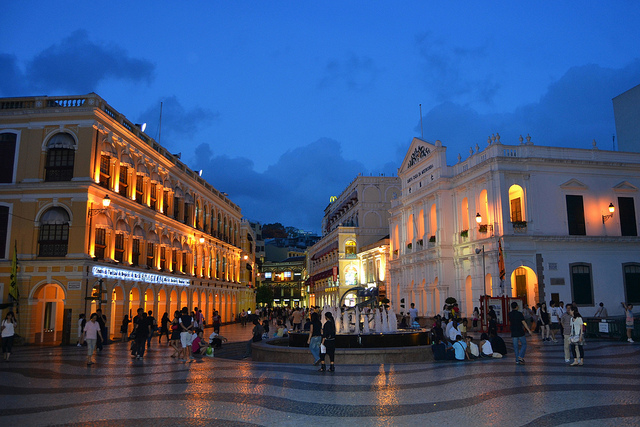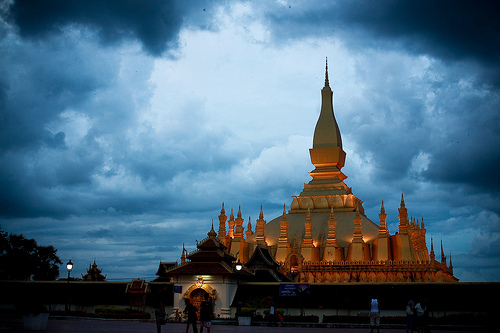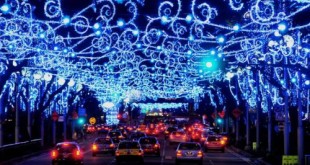South Korea is becoming more visible in the international travelers’ scene, especially after K-pop music went global and viral. This music craze sparked interest in the country which brims with allure that requires a little bit of digging to truly appreciate. South Korea, as much as it is the origin of dancing and cavorting Gangnam Style, is home to an ancient people still closely bound to their past as they are eagerly embracing the digital wave.
South Korea public holidays are a combination of state holidays and celebrations of age-old traditions, so a visit to the country around these events will lend an insider perspective on how its people accommodate changes while it holds fast to its traditions. Below is the South Korea public holidays schedule 2014.
New Year’s Day – Wednesday, 1 January 2014
Like the rest of its Asian neighbors, South Korea observes the first day of the first month of the Gregorian calendar.
Seollal (Lunar New Year) – Thursday to Saturday, 30 January – 1 February 2014
The Korean Lunar New Year is celebrated for three days: the day before, the day of, and the day after. Seollal, as the New Year is locally called, is one of the most widely celebrated occasions in South Korea. The festivities are an opportunity for families to return to their provinces to celebrate the holidays with their parents and relatives. On this day, children perform the “sebae”, a deep traditional bow before their elders as they wish them a blessed New Year. In exchange, elders give the children “pocket money” in luck bags adorned with silk designs. This is also an occasion to wear “hanbok”, the traditional dress made from bright colorful fabric made of simple lines with no pockets. Traditional games like flying kites and spinning tops are played, and traditional foods like “ttokguk” (soup with sliced rice cakes) are eaten to signify becoming a year older.
Independence Movement Day – Saturday, 1 March 2014
On this day in 1919, a group of students declared independence from Japan, an incident that sparked a nationwide civil protest. What came to be known as the March 1st or the Samil Movement eventually paved the way for the founding of the Provisional Government of the Republic of Korea. Today, this state holiday is remembered with the reading of the declaration in a public ceremony held in Tapgol Park in Seoul.
Children’s Day – Monday, 5 May 2014
The well-being of children is institutionalized in South Korea. On this day, children are given special attention and brought to amusement parks, museums and zoos for a day filled with fun and games.
Buddha’s Birthday – Tuesday, 6 May 2014
Closely related to Vesak (which celebrates the birth, enlightenment and ascending to nirvana of Buddha), Buddha’s birthday, taking place as a month-long event called the Lotus Lantern Festival, is celebrated in South Korea on the 8th day of the 4th lunar month. On this day, Buddhist shrines and temples all over the country are ablaze with lanterns, hold solemn rituals and are filled with the devout performing merits. Lit lanterns are carried in evening parades.
Memorial Day – Friday, 6 June 2014
South Koreans honor the men and women who risked and lost their lives in defense of the country. Commemoration ceremonies take place all over the country on this day, with the largest ceremony happening in the National Cemetery in the country’s capital, Seoul.
Liberation Day – Friday, 15 August 2014
On this day in 1945, Korea was liberated from Japanese control after the latter’s surrender to the Allies. Three years after, the Republic of Korea was founded. The day is traditionally celebrated at the Sejong Center for Performing Arts with top government officials and key personalities of the South Korean army in attendance. At noon, the large bell of Bosingak Pavillion is rung to commemorate those who fought and died in the struggle for independence.
Chuseok (Korean Thanksgiving Day) – Sunday to Tuesday, 7-9 September 2014
Along with Seollal, Chuseok is a major South Korean holiday that, like the South Korean New Year, is celebrated on the day before, the day of and the day after. State offices and most businesses are closed on this day, and there appears an exodus from the cities to the countryside as families celebrate the duration of the holidays by going back to their ancestral towns. Elaborate meals are prepared for the Thanksgiving and these are shared with the departed members of the family in a ritual called “charye” or ancestor memorial service. Afterwards, families go to the burial mounds to clean the tombs and spend the dusk gazing at the full harvest moon. Increasingly, families take outdoor excursions after the obligatory rituals.
National Foundation Day – Friday, 3 October 2014
Korea as a nation goes as far back as 2333 B.C. (South Korea as a sovereign state only came after World War II.) To celebrate this day, a solemn religious ceremony is performed on an altar atop Mt. Manisan in Ganghwado. The altar was thought to have been constructed by the god-king Dangun in gratitude to his forebears.
Hangeul Day – Thursday, 9 October 2014
On this day in 1446, the Korean alphabet was instituted by the publication of Hunmin Jeongeum (a document that described the correct and proper sounds of the Korean language).
Christmas Day – Thursday, 25 December 2014
The birth of the Christians’ savior is celebrated on this day, and Christian families in South Korea celebrate this occasion along with the rest of the western world.



